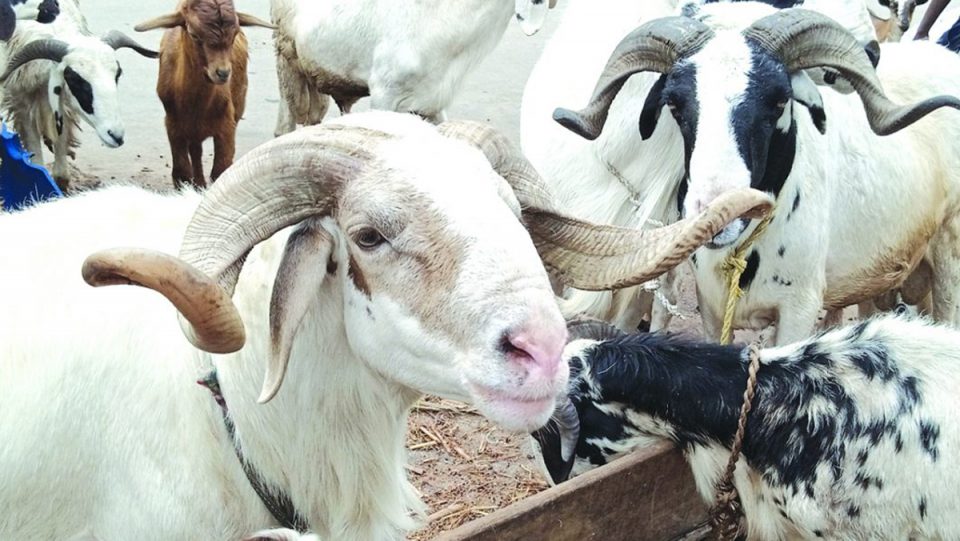As the world commemorates Sallah, Muslims in Nigeria are groaning over the high cost of ram and rising food prices.
Ram is a major symbol in the celebration and the practice of slaughtering it is as old as the religion of Islam. However, majority of Muslims have bemoaned the high cost of ram and cows and rising inflation of other foodstuff including rice, beans, yam, pepper, tomatoes and oil.
This is even as prices of food continued to rise as the Consumer Price Index (CPI) which measures inflation (rate of change in increase in prices) increased by 17.75 per cent in June 2021, signifying a 0.18 drop compared to the 17.93 per cent recorded in May.
According to the latest report by the National Bureau of Statistics (NBS), the figure implied that prices continued to rise in June but a slightly slower than it did in May.
Findings by Daily Sun across ram and food markets revealed a low turnout as the economic hardship has forced many to stay off the purchase of both rams and cows for the festival.
At the popular ram market in Kara, on the Lagos-Ibadan Expressway, an average size ram which sold for about N75,000 in March, now sells for N120,000 while those in bigger sizes range between N150,000 and N300,000. The situation was not different at the Mangoro ram market in Agege as average ram prices sold at N150,000. A buyer who declined to give his name said he had to buy the ram because he had no option.
A distraught Alhaji Akeem Ambali said failure of government to address the increasing rate of insecurity in the North was responsible for the price surge, adding that those in the business of animal husbandry were afraid to rear rams, goats and cows.
But a ram seller at Kara market, Alhaji Musa Dodo, said another contributory factor was the high cost of transportation. He said the cost of transporting a ram from Kano which hitherto was N4,000 is now N15,000 coupled with the incessant harassment from security agencies who extort drivers on the road.
‘‘All these cost would be factored into the final price and at the end of the day, the seller will equally add his margin to the final selling price.’’
Daily Sun also went round some markets in Abuja and most buyers complained that prices of ram had soared from an average of N25, 000 to N30,000 to about N40,000 and N100,000 depending on the size. Ram sellers, however, absolved themselves of blame that they were out to make brisk business saying it was not just the price of ram that had gone up, but that of other foodstuff, owing to insecurity and general inflation.
A visit to Kugbo and Kabusa markets in Abuja revealed a rush for ram and cow in spite of the cost. It was observed that while the average cost of cow was between N190,000 and N200,000, the average ram was sold for N40,000, unlike the previous year when the average cost of cow was N150,000 and ram N25,000.
At a cattle market located at Custom Quarters, Karu, Abuja, a ram seller, Abdullahi Mai Rago, told Daily Sun: “There’s no doubt that the price is significantly above what we used to sell it in the past but that is not our fault. The economy is not friendly all. Inflation has caught up with everything including cattle.”
Sani Audu, cattle seller at Kabusa market said: “We used to sell an average ram for N30,000 or even less but today, it is N45,000. You can get a cow for N200,000 now before it was N160,000 to N180,000.
Findings by Daily Sun at the popular Oko-Odo food stuff market in Lagos, revealed a sharp increase in prices of rice, onions, tomatoes, beans and vegetable oil.
A rice dealer, Mrs. Mosun Adejumo, said a bag of foreign and local rice sells for N32,000 and N25,000 as against N28,000 and N20,000 respectively
A litre of groundnut oil which hitherto sold for N750 now sells for N950 while a Derica of beans which sold for N400 now sells for N550 and a 5kg of Semo rose to N2,400 from N2,100.
A financial journalist, Adeola Yusuf, in reaction to high cost of ram, said the embargo placed on Hajj rites this year by Saudi Arabia in a bid to curtail the spread of COVID-19 was responsible for surge in ram prices. He noted that about 160,000 Nigerians that ought to perform the Hajj rites has further fuelled the surge in prices of rams.




